- Back to Home »
- What the government is hiding from you
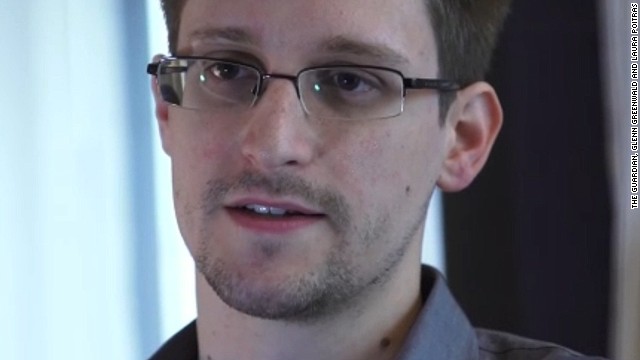 Some did it for the money, some did it for idealism, others didn't do it at all. The United States has seen a number of high-profile leak scandals in the years, most recently involving former intelligence contractor Edward Snowden, who revealed himself as the leaker of details of U.S. government surveillance programs run by the U.S. National Security Agency to track cell phone calls and monitor the e-mail and Internet traffic of virtually all Americans. Snowden has been granted temporary asylum in Russia after initially fleeing to Hong Kong. He has been charged with three felony counts, including violations of the U.S. Espionage Act, over the leaks.
Some did it for the money, some did it for idealism, others didn't do it at all. The United States has seen a number of high-profile leak scandals in the years, most recently involving former intelligence contractor Edward Snowden, who revealed himself as the leaker of details of U.S. government surveillance programs run by the U.S. National Security Agency to track cell phone calls and monitor the e-mail and Internet traffic of virtually all Americans. Snowden has been granted temporary asylum in Russia after initially fleeing to Hong Kong. He has been charged with three felony counts, including violations of the U.S. Espionage Act, over the leaks. 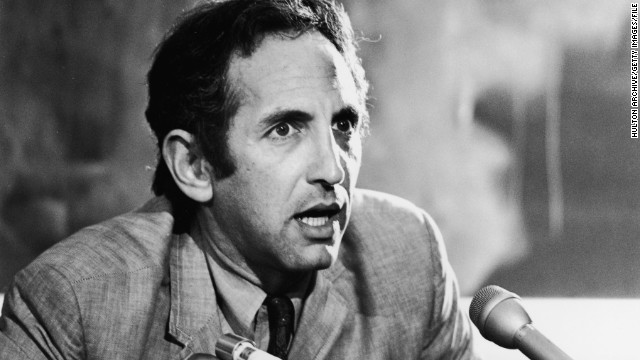 Military analyst Daniel Ellsberg leaked the 7,000-page Pentagon Papers in 1971. The top-secret documents revealed that senior American leaders, including three presidents, knew the Vietnam War was an unwinnable, tragic quagmire. Further, they showed that the government had lied to Congress and the public about the progress of the war. Ellsberg surrendered to authorities and was charged as a spy. During his trial, the court learned that President Richard Nixon's administration had embarked on a campaign to discredit Ellsberg, illegally wiretapping him and breaking into his psychiatrist's office. All charges against him were dropped. Since then he has lived a relatively quiet life as a respected author and lecturer.
Military analyst Daniel Ellsberg leaked the 7,000-page Pentagon Papers in 1971. The top-secret documents revealed that senior American leaders, including three presidents, knew the Vietnam War was an unwinnable, tragic quagmire. Further, they showed that the government had lied to Congress and the public about the progress of the war. Ellsberg surrendered to authorities and was charged as a spy. During his trial, the court learned that President Richard Nixon's administration had embarked on a campaign to discredit Ellsberg, illegally wiretapping him and breaking into his psychiatrist's office. All charges against him were dropped. Since then he has lived a relatively quiet life as a respected author and lecturer. 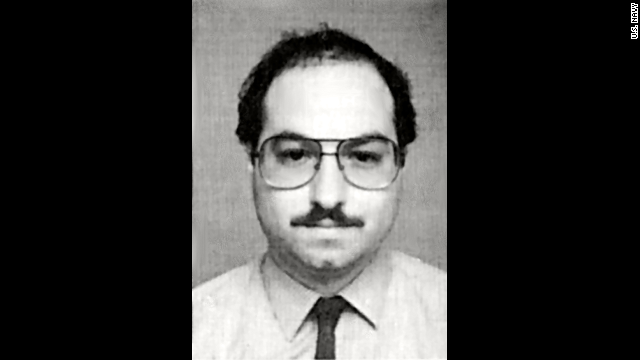 Jonathan Pollard is a divisive figure in U.S.-Israel relations. The former U.S. Navy intelligence analyst was caught spying for Israel in 1985 and was sentenced in 1987 to life imprisonment. Israeli Prime Minister Benjamin Netanyahu has publicly called for President Barack Obama to release Pollard after Pollard's wife appealed to Netanyahu.
Jonathan Pollard is a divisive figure in U.S.-Israel relations. The former U.S. Navy intelligence analyst was caught spying for Israel in 1985 and was sentenced in 1987 to life imprisonment. Israeli Prime Minister Benjamin Netanyahu has publicly called for President Barack Obama to release Pollard after Pollard's wife appealed to Netanyahu. 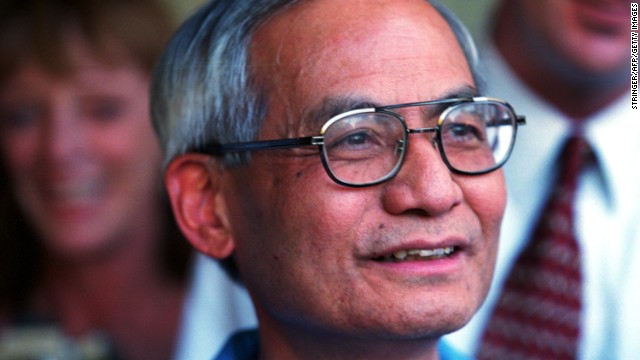 Wen Ho Lee was a scientist at the Los Alamos Laboratory in New Mexico who was charged with 59 counts of downloading classified information onto computer tapes and passing it to China. Lee eventually agreed to plead guilty to a since count of mishandling classified information after prosecutors deemed their case to be too weak. He was released after nine months in solitary confinement. Lee later received a $1.6 million in separate settlements with the government and five news agencies after he sued them, accusing the government of leaking damaging information about him to the media.
Wen Ho Lee was a scientist at the Los Alamos Laboratory in New Mexico who was charged with 59 counts of downloading classified information onto computer tapes and passing it to China. Lee eventually agreed to plead guilty to a since count of mishandling classified information after prosecutors deemed their case to be too weak. He was released after nine months in solitary confinement. Lee later received a $1.6 million in separate settlements with the government and five news agencies after he sued them, accusing the government of leaking damaging information about him to the media. 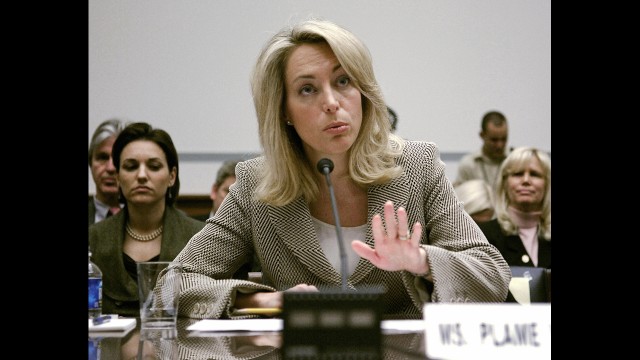 Members of the Bush administration were accused retaliating against Valerie Plame, pictured, by blowing her cover in 2003 as a U.S. intelligence operative, after her husband, former Ambassador Joe Wilson, wrote a series of New York Times op-eds questioning the basis of certain facts the administration used to make the argument to go to war in Iraq.
Members of the Bush administration were accused retaliating against Valerie Plame, pictured, by blowing her cover in 2003 as a U.S. intelligence operative, after her husband, former Ambassador Joe Wilson, wrote a series of New York Times op-eds questioning the basis of certain facts the administration used to make the argument to go to war in Iraq. 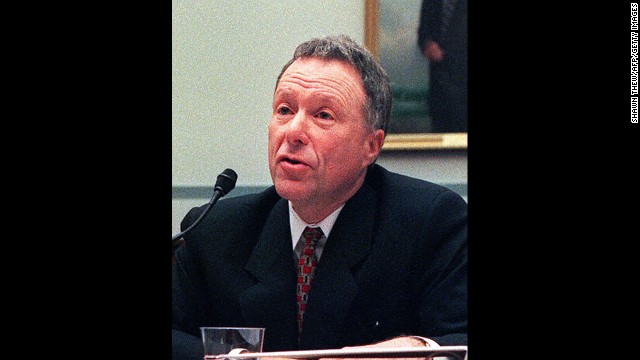 In 2007, Lewis "Scooter" Libby, Vice President Dick Cheney's former chief of staff, was convicted on charges related to the leak of the identity of CIA operative Valerie Plame. Libby was convicted of obstruction of justice and perjury in connection with the case. His 30-month sentence was commuted by President George W. Bush. Cheney told a special prosecutor in 2004 that he had no idea who leaked the information.
In 2007, Lewis "Scooter" Libby, Vice President Dick Cheney's former chief of staff, was convicted on charges related to the leak of the identity of CIA operative Valerie Plame. Libby was convicted of obstruction of justice and perjury in connection with the case. His 30-month sentence was commuted by President George W. Bush. Cheney told a special prosecutor in 2004 that he had no idea who leaked the information. 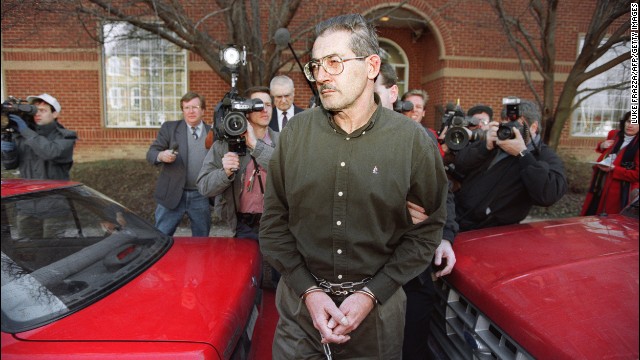 Aldrich Ames, a 31-year CIA employee, pleaded guilty to espionage charges in 1994 and was sentenced to life in prison. Ames was a CIA case worker who specialized in Soviet intelligence services and had been passing classified information to the KGB since 1985. U.S. intelligence officials believe that information passed along by Ames led to the arrest and execution of Russian officials they had recruited to spy for them.
Aldrich Ames, a 31-year CIA employee, pleaded guilty to espionage charges in 1994 and was sentenced to life in prison. Ames was a CIA case worker who specialized in Soviet intelligence services and had been passing classified information to the KGB since 1985. U.S. intelligence officials believe that information passed along by Ames led to the arrest and execution of Russian officials they had recruited to spy for them. 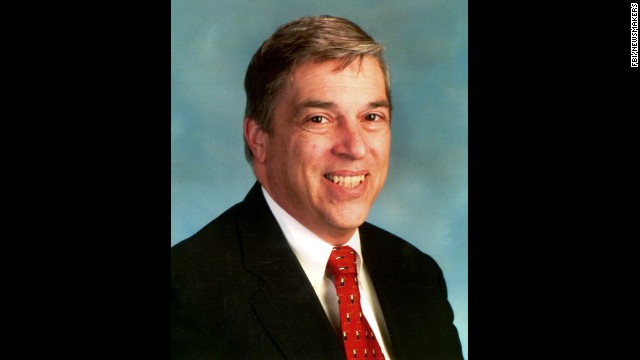 Robert Hanssen pleaded guilty to espionage charges in 2001 in return for the government not seeking the death penalty. Hanssen began spying for the Soviet Union in 1979, three years after going to work for the FBI and prosecutors said he collected $1.4 million for the information he turned over to the Cold War enemy. In 1981, Hanssen's wife caught him with classified documents and convinced him to stop spying, but he started passing secrets to the Soviets again four years later. In 1991, he broke off relations with the KGB, but resumed his espionage career in 1999, this time with the Russian Intelligence Service. He was arrested after making a drop in a Virginia park in 2001.
Robert Hanssen pleaded guilty to espionage charges in 2001 in return for the government not seeking the death penalty. Hanssen began spying for the Soviet Union in 1979, three years after going to work for the FBI and prosecutors said he collected $1.4 million for the information he turned over to the Cold War enemy. In 1981, Hanssen's wife caught him with classified documents and convinced him to stop spying, but he started passing secrets to the Soviets again four years later. In 1991, he broke off relations with the KGB, but resumed his espionage career in 1999, this time with the Russian Intelligence Service. He was arrested after making a drop in a Virginia park in 2001. 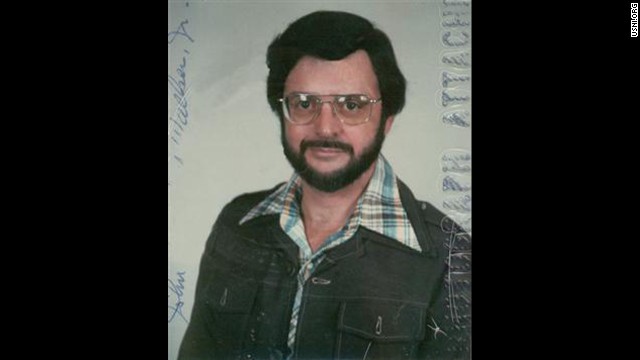 John Walker ran a father and son spy ring, passing classified material to the Soviet Union from 1967 to 1985. Walker was a Navy communication specialist with financial difficulties when he walked into the Soviet Embassy and sold a piece of cyphering equipment. Navy and Defense officials said that Walker enabled the Soviet Union to unscramble military communications and pinpoint the location of U.S. submarines at all times. As part of his plea deal, prosecutors promised leniency for Walker's son Michael Walker, a former Navy seaman.
John Walker ran a father and son spy ring, passing classified material to the Soviet Union from 1967 to 1985. Walker was a Navy communication specialist with financial difficulties when he walked into the Soviet Embassy and sold a piece of cyphering equipment. Navy and Defense officials said that Walker enabled the Soviet Union to unscramble military communications and pinpoint the location of U.S. submarines at all times. As part of his plea deal, prosecutors promised leniency for Walker's son Michael Walker, a former Navy seaman. 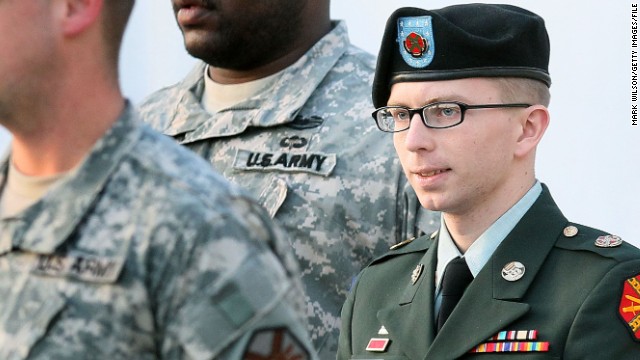 Army Pvt. Bradley Manning was convicted July 30 of stealing and disseminating 750,000 pages of classified documents and videos to WikiLeaks, and the counts against him included violations of the Espionage Act. He was found guilty of 20 of the 22 charges but acquitted of the most serious charge -- aiding the enemy. Manning was sentenced to 35 years in military prison on August 21.
Army Pvt. Bradley Manning was convicted July 30 of stealing and disseminating 750,000 pages of classified documents and videos to WikiLeaks, and the counts against him included violations of the Espionage Act. He was found guilty of 20 of the 22 charges but acquitted of the most serious charge -- aiding the enemy. Manning was sentenced to 35 years in military prison on August 21. - A secret court opinion found that the NSA had violated Americans' rights
- Mark Rumold: It's outrageous that government hid the opinion from the public
- He says the NSA must not stonewall the public about their activities anymore
- Rumold: We need to investigate the full scope of NSA's surveillance practices
Editor's note: Mark Rumold is a staff attorney at the Electronic Frontier Foundation, an organization that champions the public's digital rights.
(CNN) -- Next Tuesday, the U.S. Department of Justice is set to release hundreds more pages of legal opinions detailing the National Security Agency's alarming surveillance operations.
The new release should further anger Americans who were already deeply dismayed by the disclosure of an October 2011 Foreign Intelligence Surveillance Court opinion, which found that the NSA had violated the Constitution and federal law with its surveillance program.
But we shouldn't just be upset because the court opinion revealed that the NSA has illegally and unconstitutionally collected the emails and other communications of tens of thousands of innocent Americans. We shouldn't just be upset because the NSA couldn't convince a secret court that its surveillance was legal. And we shouldn't just be upset because the opinion showed that the government, in the words of the FISA court, "frequently and systemically" disregarded the court's orders.
What should infuriate every American — whether you're a Republican or Democrat, rich or poor, or even whether you are for or against the NSA's surveillance program — is the fact that the government hid the FISA court's opinion from the public for years.
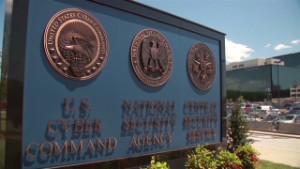 Why are Brazil, Mexico angry with NSA?
Why are Brazil, Mexico angry with NSA? 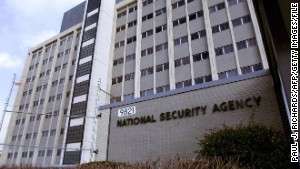 NSA surveillance revelations
NSA surveillance revelations  Open Mic: Russians on Edward Snowden
Open Mic: Russians on Edward Snowden Hiding a significant opinion of a federal court, regardless of the topic of the opinion, is inimical to our democracy.
In the ongoing debate on NSA surveillance, there are two separate, but equally important, questions at stake. The first part of the debate focuses on the legality of the surveillance: is the NSA's surveillance being conducted in accordance with federal laws and the Constitution? The second focuses on the democratic legitimacy of the surveillance: have citizens, through their elected officials and through an informed and fair process, approved the laws the government relies on and the actions of the NSA?
Even setting aside one's views on the first question, the story behind the FISA court opinion provides insight on the second question. The answer, quite simply, is "no." The government has intentionally kept the public in the dark for years.
For the past year, the Electronic Frontier Foundation, where I work, has been fighting the government in federal court for the public release of the FISA court's opinion. We sued the Department of Justice in August 2012 after the government refused to disclose it.
Initially, we sought the opinion to contribute to a full, informed public debate on the reauthorization of the FISA Amendments Act, the expansive federal law the NSA relies on to conduct its domestic surveillance operations. The law was scheduled to expire at the end of 2012, and, in the summer and fall of 2012, Congress was debating whether the law should be renewed and if reforms should be introduced.
But, during that debate, the government repeatedly delayed publicly disclosing anything about the opinion or the government's surveillance. Months went by, the debate on the FISA Amendments Act came and went, and, on December 30, 2012, the law was reauthorized for another four years.
On January 4, 2013, four days after the reauthorization was signed into law, the government finally produced records in response to our lawsuit. Here's an example of what they gave us. In short, nothing.
Now, eight months later — and only after EFF won the first known motion by a private party in the secret FISA court; only after the most significant leak of surveillance information in American history; and only after a federal court ordered the government to finalize its declassification decisions and release the opinion — the government finally relented.
When current and former administration officials like Gen. Michael Hayden take to the airwaves or editorial pages to rebut the "[b]reathless claims" about NSA spying with condescending offers to help "citizens understand a few basics of what exactly is being done," know this -- advocates and organizations like the EFF have been fighting for a "few basics" about NSA surveillance practices for years.
But government officials, like Hayden, have refused at every step in the process to provide those facts. And, as is now apparent, it's not just the public that was denied information, members of Congress and the judiciary have been misled or kept in the dark about many aspects of the NSA's surveillance as well.
Now is the time to change this. The executive branch, intelligence agencies and the NSA in particular have lost the right to stonewall the public about their activities. They have lost the right to treat us condescendingly. And it's far too late in the day to selectively provide a "few basics" about the government's surveillance.
We need all the facts, and we need them now.
In the 1970s, after the Watergate scandal and multiple reports that federal agencies had spied on Americans, Congress created a special investigatory commission, the Church Committee, to investigate. Through public hearings and investigations, the Committee ultimately produced a series of reports providing the most thorough investigation of American intelligence agencies in our nation's history. Many of the Committee's recommendations were adopted and resulted in a host of beneficial reforms to federal law. It's now apparent that we need a second Church Committee to fully and independently investigate the full scope of the NSA's surveillance practices and to recommend meaningful reforms.
EFF, along with 100 other organizations and more than 500,000 individuals, have joined together to call on Congress to initiate a full, and public, investigation of the government's intelligence practices.
And I hope Hayden will join us, too. His recent op-ed remarked that the debate on NSA surveillance would be enhanced if "discussion were based on fact rather than contaminated by inaccuracies and posturing." I couldn't agree more.
We have been lied to, misled and kept in the dark for too long: it's time we the people command the full story on NSA surveillance.
Follow us on Twitter @CNNOpinion.
Join us on Facebook/CNNOpinion.
The opinions expressed in this commentary are solely those of Mark Rumold.







